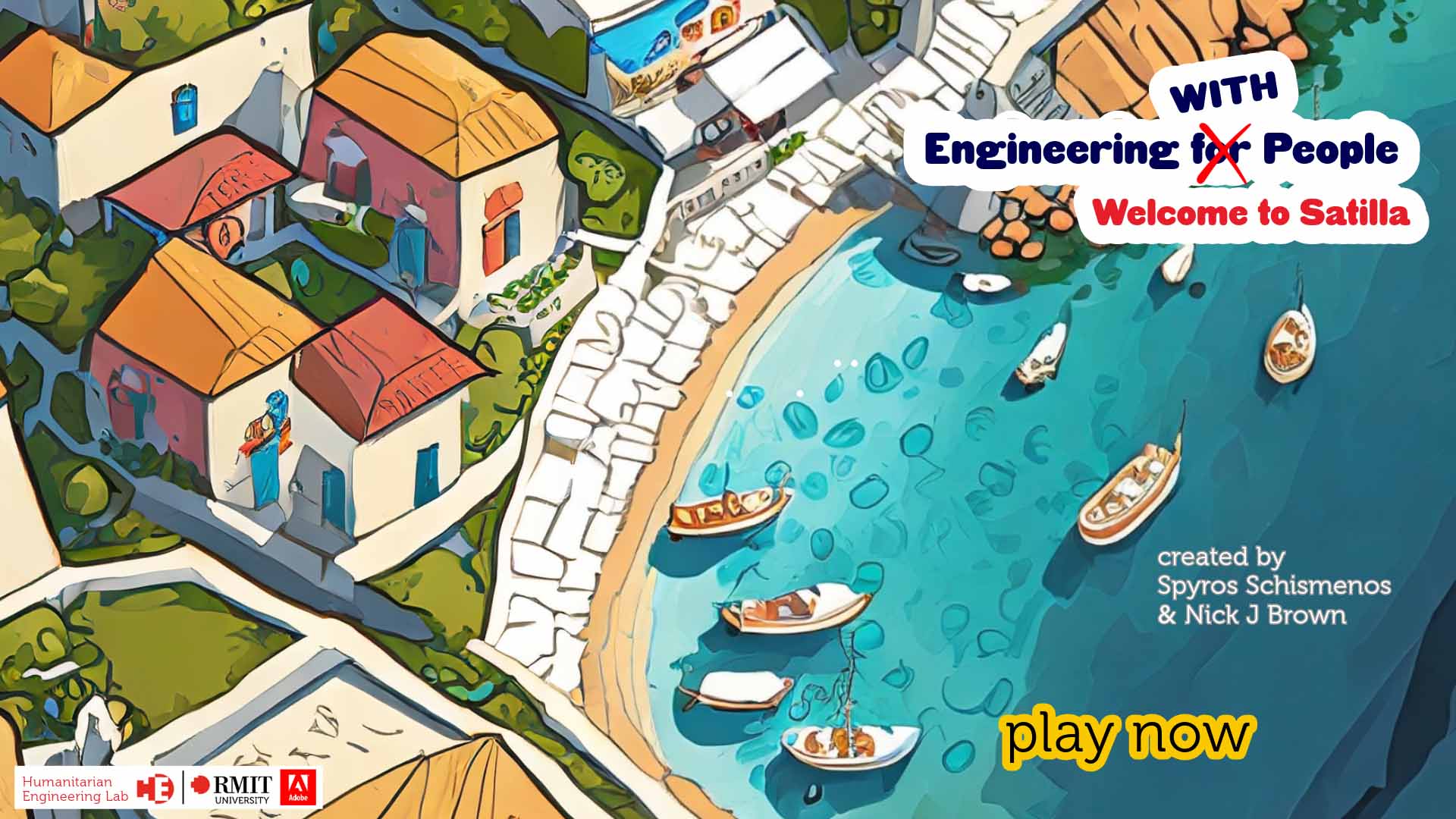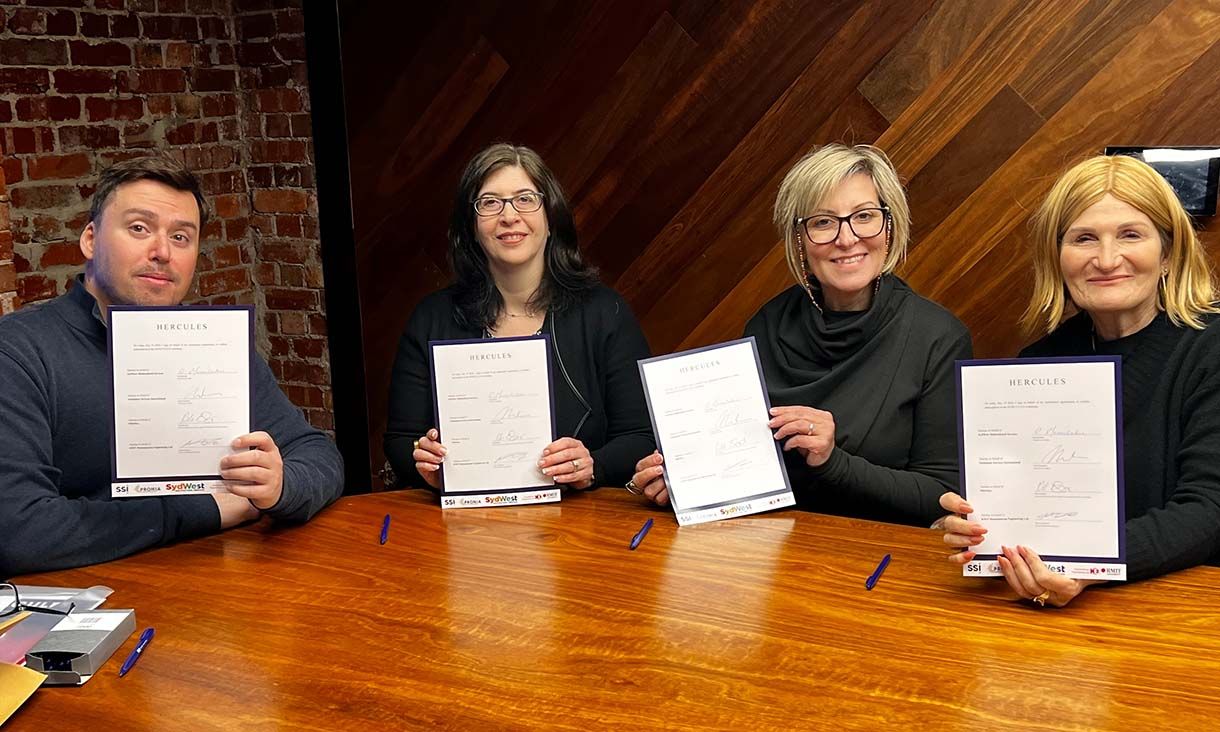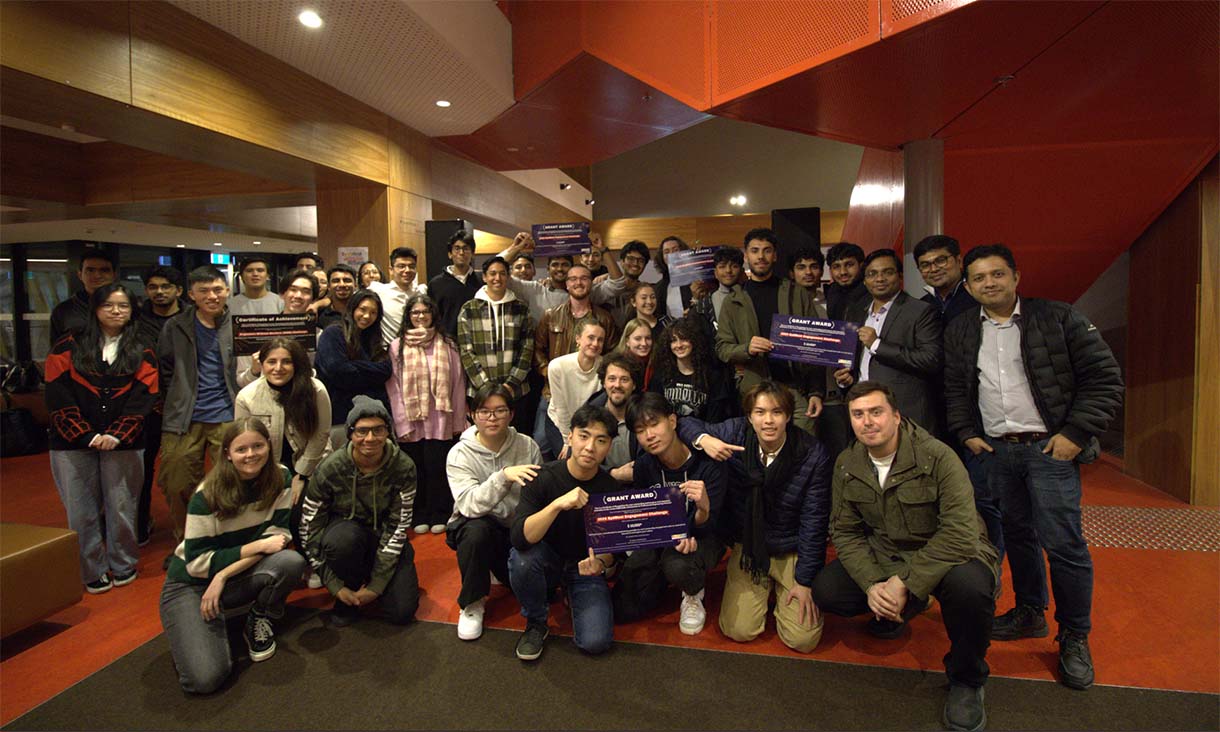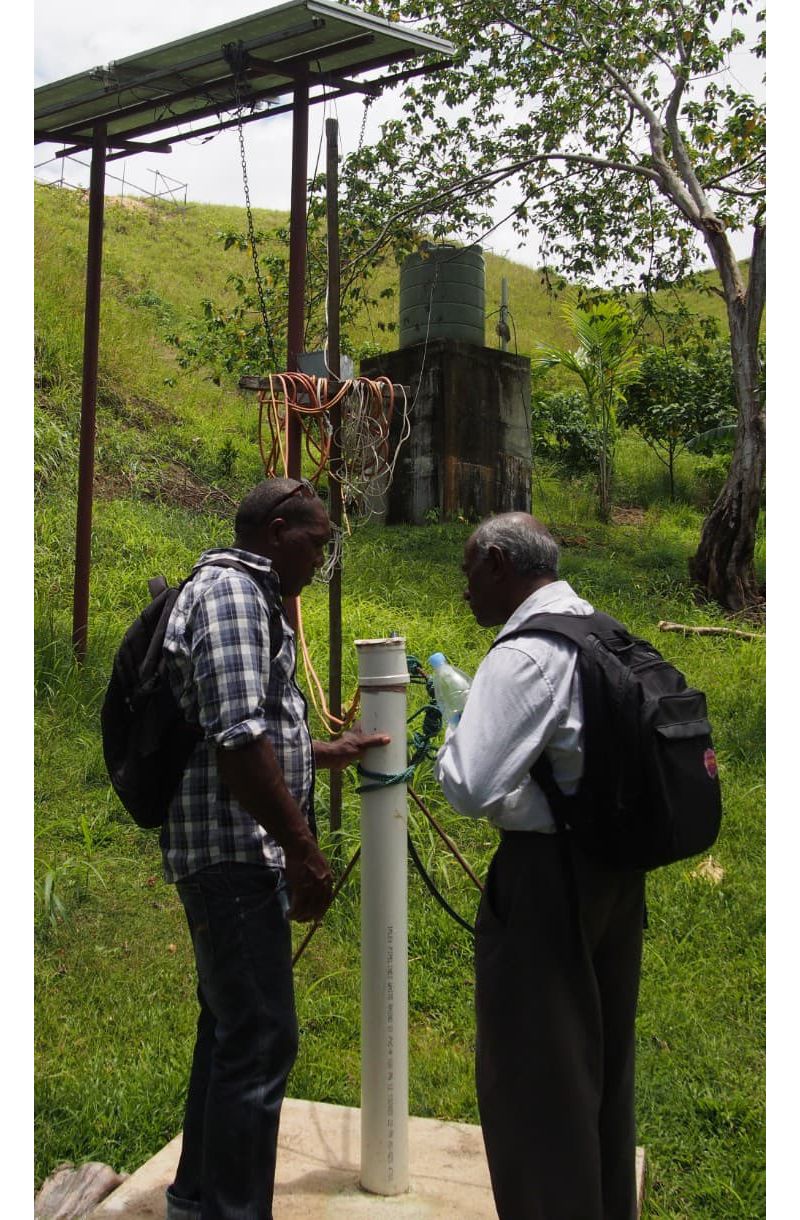Humanitarian engineering sits across all engineering disciplines with a focus on social impact and improving quality of life in society.
Humanitarian engineers often work with vulnerable and marginalised communities and combine specialist social and technical thinking with core engineering practices. This approach could be applied in disaster response, long-term development or marginalised inclusion.
Our engineering students and staff have the opportunity to develop their skills in humanitarian engineering through a range of projects and experiences. Whether you’re about to start your university journey or looking to advance it, join our diverse and inclusive team. Scholarships, research projects and other opportunities are often available to our members.
Humanitarian Engineering Lab
RMIT’s Humanitarian Engineering Lab is dedicated to innovative teaching and research. We offer a range of services, including consultation, educational programs, training, and research expertise for organisations in Australia and internationally.
Contact Dr Nick Brown (Education Lead) or Dr Spyros Schismenos (Research Lead) for more details.
Engineering WITH People – the first board game in Humanitarian Engineering!
 ‘Engineering WITH People: Welcome to Satilla’ version (funded by Adobe, made using Adobe tools)
‘Engineering WITH People: Welcome to Satilla’ version (funded by Adobe, made using Adobe tools)
‘Engineering WITH People’ was developed by Dr Spyros Schismenos and updated on the experiences of Dr Spyros Schismenos and Dr Nick Brown while working with communities.
The game was designed to prepare students understand real-world challenges and genuine community engagement but it is suitable for everyone regardless of their knowledge in the humanitarian and development field. Contact Dr Spyros Schismenos if you want to know more about our gamification projects.
Humanitarian Engineering Research Consortium: Understanding & Leveraging Engineering with Society (HERCULES)
 HERCULES Agreement
HERCULES Agreement
The HERCULES initiative was established through a collaboration between the Humanitarian Engineering Lab, SydWest Multicultural Services, Settlement Services International and PRONIA. Our goal is to strengthen and promote collaboration between academia and industry through research, education and engagement. Our focus areas include advancing humanitarian engineering, aged care, healthcare, migration policies and environmental initiatives for a better world.
In the photo (left to right: Dr. Spyros Schismenos – RMIT academic, Ms. Nikki Efremidis – PRONIA Interim CEO, Ms. Elfa Moraitakis – SydWest Multicultural Services CEO), Ms. Violet Roumeliotis – Settlement Services International CEO
Humanitarian Engineering Engagement Challenge
 2024 Humanitarian Engineering Engagement Challenge Awardees (SydWest Engagement)
2024 Humanitarian Engineering Engagement Challenge Awardees (SydWest Engagement)
All first-year engineering students at RMIT work on humanitarian challenges in the core course OENG1166. Introduction to Professional Engineering Practice. This course is one of the largest in Australia with more than 1,500 students. As part of the course, students participate in the Humanitarian Engineering Engagement Challenge -in collaboration with SydWest Multicultural Services, Settlement Services International, and PRONIA.
Our students work with culturally and linguistically diverse communities in Victoria and New South Wales to address local priority needs in health, energy, infrastructure, domestic/family violence and climate change.
Awardees receive training, access to resources and services, mentoring, and $40,000 in funding to continue working on their projects throughout their studies.
Capstone projects solving real-world problems

Final year undergraduate engineering students can choose to solve a pressing real-world humanitarian problem via their capstone project. This can include complementary field work.
For example, RMIT sustainable systems engineering students, studying food security and nutrition, have completed field visits to rural farming communities in Timor-Leste to investigate harvesting and storage techniques.
Civil engineers have looked at earthquake resistant construction techniques and materials in Nepal before replicating the conditions in the lab at RMIT.
Environmental engineers have worked with communities in remote Fiji to monitor and treat drinking water (see image)
Humanitarian engineering capstone projects are a great way to work with industry partners on real-world challenges and can be a point of difference when showcasing project work to prospective employers.
Humanitarian Experiential Learning Project
 On the remote Fijian island of Naviti, Associate Prof Matt Currell and students show community elder Tai Samsi how to sample drinking water from the blue communal rainwater tank behind (Source: Nick Brown)
On the remote Fijian island of Naviti, Associate Prof Matt Currell and students show community elder Tai Samsi how to sample drinking water from the blue communal rainwater tank behind (Source: Nick Brown)
Engineering students can select the elective course Humanitarian Experiential Learning Project (course code: OENG1164) which combines workshops on campus with at least two weeks immersed in a less-developed country such as India, Nepal, Timor-Leste or Cambodia.
“I have come back to a greater motivation for my degree, to learn as much as I can and get onto what I really want to be doing; finding my place in helping people all over the world,” said one of the students involved.
For Australian citizens and permanent residents, funding is often available through scholarships to cover most of the costs of travel and participation.


